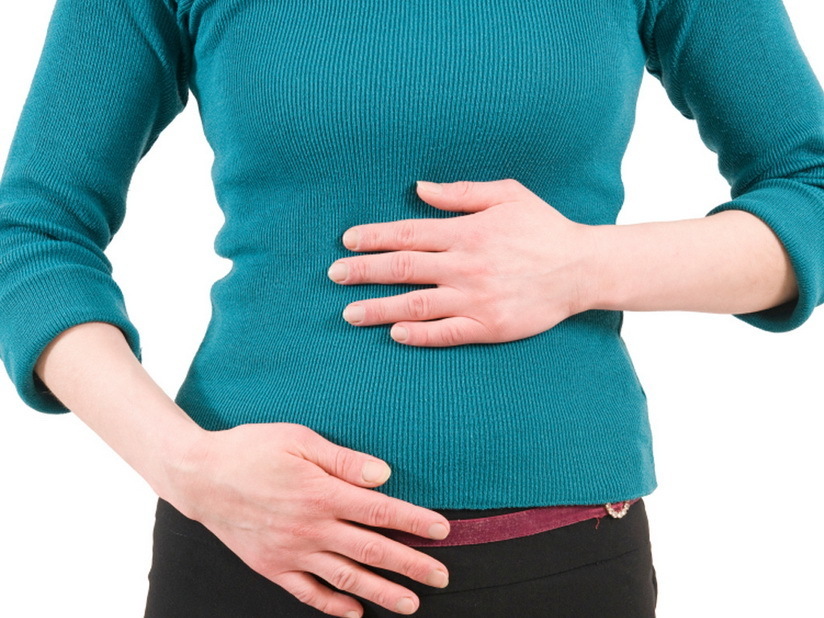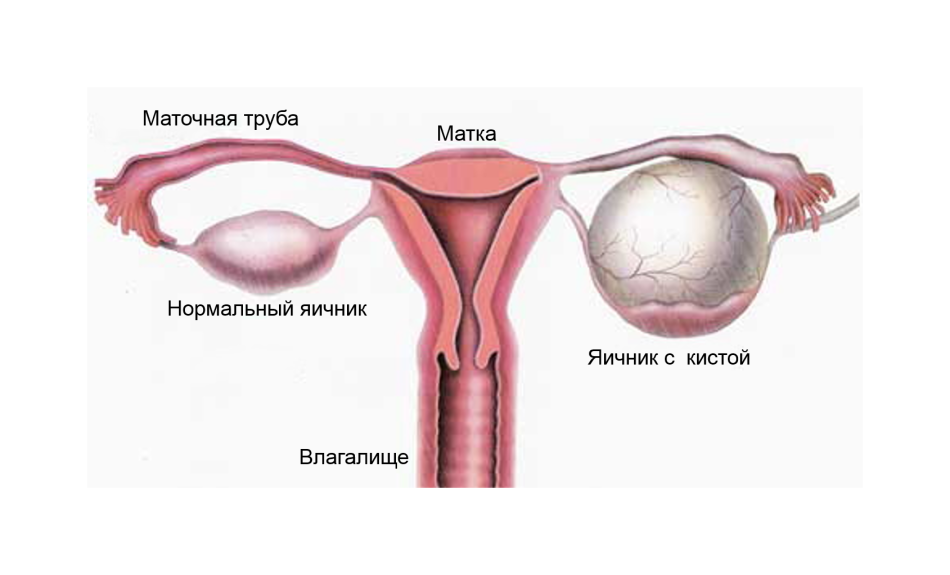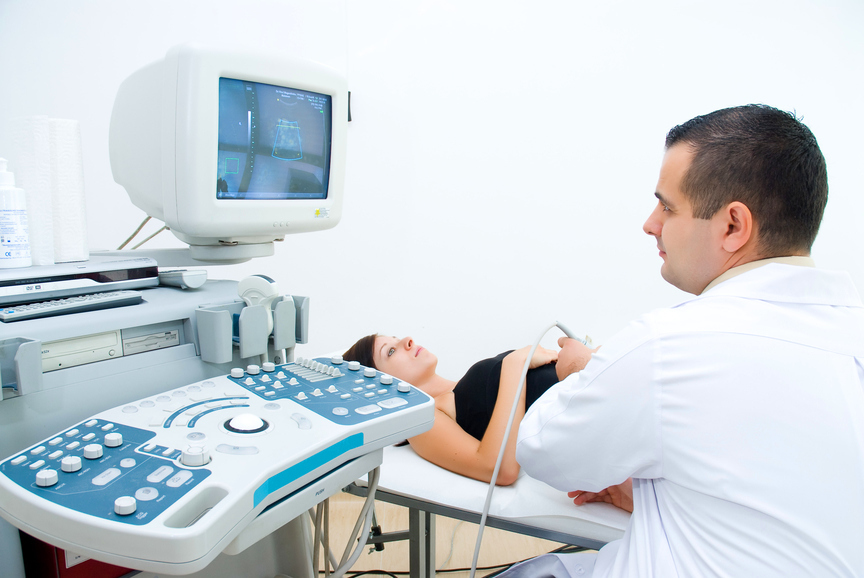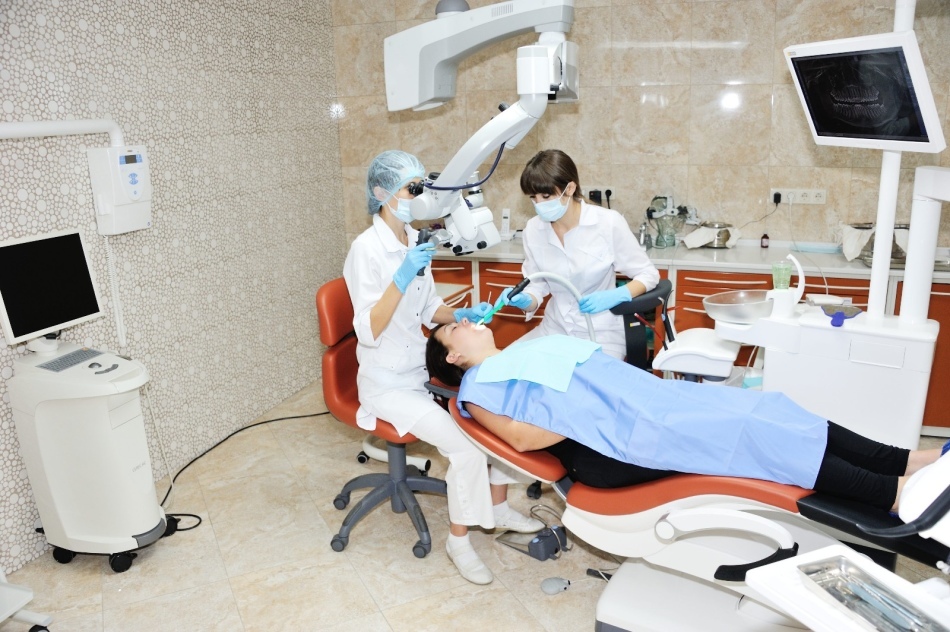Successful infertility treatment primarily depends on proper diagnosis and identification of causes. Only a small percentage of infertility cases can not be cured. I propose to consider in more detail the problem of male and female infertility.
Contents of
- What is female and male infertility?
- Common causes of infertility
- Medications that affect reproductive function and cause infertility
- Depression and infertility. The influence of the emotional state on the function of childbearing
- The main causes of female infertility
- Hormonal disorders in the woman's body and infertility
- Ovarian cysts and infertility
- Abortion as the cause of infertility. Infertility after surgical and medical abortion
- Video: Abortion for and against
- Diagnosis of infertility in women
- Can infertility be cured: advice and feedback
- Video: Prevention of female infertility
- Main causes of male infertility
- Does prostatitis lead to infertility?
- Immunological infertility in men
- Hereditary male infertility
- Prevention of male infertility, video
- Selection of a clinic for the treatment of infertility. What should I look for?
- Folk remedies for infertility: royal jelly, perga, honey and others
- Video: Female infertility is not a sentence
The problem of infertility often begins to be considered not in a single person, but in a couple in the complex. This can be both permanent sexual partners, and a married couple. Doctors start to raise the issue of infertility, if a couple for a year without means of protection does not occur pregnancy.
What is female and male infertility?
A couple who wants a child, pregnancy occurs within three months, less often - in six months. The more time passes, the less chance of pregnancy. And, if more than a year attempts to conceive a child have not been successful - it is worth talking about a visit to a doctor.
The reproductive health specialist is responsible for the continuation of the genus, assigning a series of examinations to the couple, which can last 1-3 months.
Important: Some types of examinations to a woman are done only in certain phases of the menstrual cycle to obtain a more accurate result.
Based on the results of the examination, a diagnosis is made. It may be about infertility couples( when there is a disruption in the interaction of the partner's sex cells), women or men.
Infertility can be primary and secondary:
- If a woman has never had a pregnancy or no male partner has been able to conceive from him - the primary infertility
- If a woman was pregnant( no matter what outcome) or some partner of a man was pregnant- infertility is considered secondary

Common causes of infertility
Remember that infertility can be absolute( the possibility of conception is excluded) and relative( the onset of pregnancy is possible under certain conditions).There are 4 factors that distinguish absolute infertility: absence:
- of spermatozoa or their activity
- of the uterus( or its underdevelopment)
- of the appendages( or their anomalies)
- of the fallopian tubes
There are quite a few causes of relative infertility:
- Age.
Women after 35 years of age suffer from a decrease in the number or natural aging of eggs. Fertility of men can remain high even up to 60 years, as the decrease in testosterone and sperm activity is very slow and almost unnoticeable. - The use of drugs, alcohol, addiction to tobacco products. These substances strongly affect fertility - the natural fertility - of a person. The activity of sperm decreases, in women the chance for conception of
- decreases. Overweight and diseases associated with its presence( diabetes, high blood pressure, etc.).Excessive leanness can also provoke a disruption of the reproductive function of
- Infectious diseases and their consequences
- STDs( gonorrhea, syphilis, etc.)
- Medications
Some medications have a negative effect on the childbearing function of
Important: Do not self-medicate. Many drugs are selected individually after consulting a doctor.

Medications that affect reproductive function and cause infertility
Most vaccinations are aimed at protecting against diseases that can cause infertility: measles, rubella, mumps. However, recently( namely, since 2006) it became known about the vaccine against HPV - the human papilloma virus, which leads to a number of complications, including cervical cancer.
The benefits of vaccination are rather questionable, but the consequences are frightening. In many countries, including Russia, after the vaccination, there was a jump in the number of girls and women who were diagnosed with infertility after vaccination. The vaccine contains the human cholionic gonadotropin, which is the hormone necessary to maintain pregnancy.
IMPORTANT: In combination with the components of the vaccine, the body produces antibodies against this hormone, which leads to the lack of the possibility of a normal pregnancy course.
Medications that can negatively affect reproductive function are different in nature.
- For women, the greatest danger is represented by hormonal medications that cause a malfunction in the body. Frequent use of emergency contraception or incorrectly selected oral contraceptives can significantly reduce fertility and lead to a number of serious complications.
- Men are threatened with infertility by anabolic steroids that affect spermatozoa, long-term antibiotic use. Perceptible damage, sometimes irreversible, for the male reproductive function is chemotherapy

Depression and infertility. Influence of the emotional state on the function of childbearing
In addition to medical problems with health, infertility can result in an emotional state. In this case, they talk about psychological( psychogenic) infertility.
In women, the body is in a state of stress weakened, therefore, the child's bearing is complicated. For the normal functioning of the reproductive function, it is necessary to remove the source of depression( or resort to the help of doctors to treat it) and calm down. The main causes of the development of depression:
- Obsessive desire to become pregnant
- Unwillingness or fear of becoming a mother
- Constant stress caused by heavy loads, psychological pressure from the outside, financial problems
The existence of psychogenic infertility in men is not proven. However, the mechanism is similar to female: the disorder of the emotional state negatively affects the reproductive function and leads to a decrease in the number of active spermatozoa.

The main causes of female infertility
Absolute infertility can be due to a number of factors, it can not be treated regardless of the time of its diagnosis. The causes may be problems with the uterus:
- Infantilism
- Hypoplasia( underdevelopment)
- Duplicity( presence of a septum in the uterus)
- Injuries or removal of the uterus
Absence of ovaries, fallopian tubes or their obstruction can lead to absolute infertility.
Fortunately, relative infertility is different in that it is treatable. In most cases, with proper diagnosis, a woman can conceive and bear the child herself. The causes of relative infertility may be:
- Endocrine disorders of
are caused by hormonal problems in the body. These include anovulation( lack of ovulation), a lack of progesterone( the sex hormone necessary for bearing the fetus), various ovarian lesions( cyst or polycystosis leading to the absence of egg production, swelling, inflammation), endometriosis( endometrial tissue clogs the fallopian tubes), excessProlactin( a hormone that does not allow to become pregnant) - Immune problems
Immune diseases lead to the development of immunity to spermatozoa partner - Tubular form of infertility
Due to obstruction mAtodic tubes
Hormonal disorders in the body of a woman and infertility
The hormonal( endocrine) disorders include:
- Anovulation( absence of ovulation)
- Deficiency of progesterone( sex hormone necessary for bearing a fetus)
- Various ovarian lesions( cyst or polycystosis leading to no productioneggs, tumors, inflammation)
- Endometriosis( endometrial tissue clogs the fallopian tubes)
- Hypotolamo-pituitary dysfunction leads to excess prolactin( hormone, do not allowhis pregnant)
- Hyperandrogenism( excess male hormones)
main cause of infertility are hormonal endocrine disorders, pathologies associated with the thyroid gland, adrenal glands, which leads to disruption of hormone.
Important: The main symptom of hormonal disorders is the absence of menstruation for more than six months.

Ovarian cysts and infertility
Ovaries are the most important organs in the female reproductive system in which oocytes mature. The most common disease of this organ is the cyst. This name has a hollow formation in place of the ripening follicle, filled with liquid. The causes of the formation may be different:
- Breaking the hormonal background
- Menstruation cycle failure
- Abortion
- Heredity
Not always the presence of a cyst leads to infertility. Often the cyst resolves itself without requiring surgical intervention. Only when the threat of its rupture is resorted to the removal of this education.
Important: Regular visit to the gynecologist will help to determine the possibility of resorption of the cyst during several menstrual cycles, and also to timely resolve the need for its removal.

Abortion as the cause of infertility. Infertility after surgical and medical abortion
Causes of secondary infertility:
- Age - decreased fertility is observed after 30-35 years.
- Changes in hormonal background
- Incompatibility with partner
- Gynecologic diseases and STDs
- Lifestyle - malnutrition, bad habits and other factors that have a detrimental effect on the reproductive function of the female body
- Consequences of surgical intervention, ectopic pregnancy or complications after childbirth or abortion
Unfortunately, abortion is one of the most common causes of secondary infertility.
Important: Both medical and surgical abortion carry the same danger.
- Medical abortion does not imply surgical intervention, it is carried out by taking medications that cause fetal death and miscarriage. The consequences can be quite deplorable: the allergic reaction of the female body, hormonal failure, bleeding after miscarriage and the onset of inflammatory processes detrimental to the reproductive function of
- Surgical abortion is a traumatic procedure during which the fetus is scraped from the uterus. Infertility can lead to complications after this intervention: adhesions and scars on the uterus, uterine bleeding, cervical injury, infection
- In addition to medical problems, abortion can lead to the emergence of psychological infertility
Important: Abortion is strictly not recommended for the first pregnancy, the presence in the past of birthby caesarean section, late for an abortion term.
Video: Abortion for Pros and Cons
Diagnosis of infertility in women
In order to treat infertility, it is extremely important to timely identify the causes and establish the correct diagnosis. For this purpose, a number of studies are used:
- ultrasound of pelvic organs helps to identify the pathology of the genitals, determines the patency of the fallopian tubes, determines myoma and polycystosis
- Baseline temperature measurement - a long-term schedule of temperature changes in the morning and in the evening that helps to determine the functionality of the ovaries
- Assayson infection
- Bacteriological crops
- Assays for hormones
- Hysteroscopy - using an optical instrument equipped with a miniidcamera, the uterine cavity is examined
- A postcoital test aimed at detecting antibodies is made to establish the compatibility of the
spouses. In cases of an unknown cause of infertility, additional examinations are prescribed. For example, laparoscopy, which examines internal organs with an optical instrument through a puncture in the abdominal cavity. The procedure is performed under anesthesia.
You may also be offered a hysteroscopy aimed at examining the uterus. During the procedure, the uterine cavity is filled with a solution and the condition of the walls and mucosa is assessed using a thin tube with a chamber inserted through the vagina. If necessary, you can take a biopsy.

Is it possible to cure infertility: advice and feedback
- Give up smoking, drinking alcohol and drugs
- Watch your weight - excess weight or excessive leanness equally detrimental to the childbearing ability of
- Avoid vitamin deficiency, watch for food
- Visit gynecologist regularly
- Do not practiceself-medication
- Refrain from accidental sexual contact
Video: Prevention of female infertility
The main causes of male infertility
Male infertilityis not less common than female. In half the cases of problems with conception in a married couple, it turns out that the matter lies in the reproductive system of a man. The male reproductive system consists of two parts: the external and internal genital organs.
The main causes of male infertility:
- Cryptorchidism - the absence of one or two testicles in the scrotum. Pathology occurs even during fetal development and in most cases is not treated immediately, because the testicles can still fall in the first year of life of the baby
- Hypopodium - displacement or shortening of the urethra
- Varicocele - reduction of blood flow from genital organs due to elongated veins or their expansion
- Hypogonadism- weak development of the genitals or absence of secondary sexual characteristics
- Infectious diseases( STD, mumps)
- Hormonal disorders - lack of development of a testosteroneshe
- Sexual disorders - premature ejaculation, erectile dysfunction

Does prostatitis lead to infertility?
- Prostatitis - inflammation of the prostate gland, which leads to a decrease in the number of spermatozoa and a decrease in their mobility
Immunological infertility in men
- Immunological infertility - the male body produces antispermal bodies( ACAT), attacking spermatozoa. It comes most often as a result of trauma, when spermatozoa get into the blood of a man and cause an immune response. To such barreness, in addition to trauma, can lead varicocele, STD, inguinal hernia and inflammatory diseases in the genitals
Inherited male infertility
- Genetic infertility is a chromosomal abnormality that is inherited. It can be expressed in the presence of an extra chromosome or their abnormal set. Underdevelopment of the vas deferens can also be attributed to hereditary infertility
Prevention of male infertility, video
- The main prevention of infertility is a regular and timely visit to the doctor
- Healthy lifestyle
- Exclusion of chemical factors( eg, harmful effects at work)
- Treatment of inflammatory diseases
- Surgical treatment of genital tract diseases, hernia, tumors
- Conducting a regular sexual life
Choosing a clinic for infertility treatment. What should I look for?
The main role in the treatment of infertility is played by the choice of the clinic and the attending physician, because the correctly diagnosed diagnosis is the key to successful recovery. There are several ways to choose:
- Search on the Internet - it is convenient for its availability and the presence of forums for the feedback of patients, on which you can ask the questions that interest you. On the websites of many clinics you can find statistics on successful treatment outcomes. However, virtual information can turn out to be incorrect
- Recommendations - you can live with a person in person, learn about the conditions of the clinic, the attitude of the staff, the cost, etc. In this case, it is necessary to deal with the human factor. Diagnosis, treatment, results are all individually for each pair, so is it worth listening to?. ..
- Personal clinic visit - you can personally assess the conditions, the proposed diagnosis, communicate with staff, assess the strengths and weaknesses of a number of institutions before making a decision. Pay attention to the interior, the availability of diplomas and certificates( do they meet your requirements)
Important: Just pay attention to the availability of a license.

Folk remedies for infertility: royal jelly, perga, honey and others
Traditional medicine is helping to cope with secondary infertility.
- Honey - it is recommended to take every day for 100-200 g of honey dissolved in water. Take an hour and a half before meals. A good effect is rendered by honey with royal jelly in proportion 1: 2
- Royal jelly and pergah - increases the probability of conception, in men leads to an improvement in potency. Perga is well combined with honey water, the daily dose should not exceed 30 g. Royal jelly is insisted with vodka for about a day in a ratio of 1: 2.Take this infusion of 15 drops an hour and a half before meals.
- Izmagen is a perennial growing in Siberia. Its action is aimed at normalizing the amount of hormones and treating inflammatory processes in the reproductive system. It is also used to eliminate ovarian cysts and uterine myomas. Take daily before meals in the form of a decoction( 2 tablespoons) or vodka tincture( half teaspoon)
- Sage - it is recommended to take women after 35 years to normalize the number of female sex hormones. Drink a glass of infusion every morning in the morning. When taking a course of one month acts as a rejuvenating agent
Important: At high dosages can cause allergy or poisoning
- Geranium oil - has anti-depressant and anti-inflammatory effect. Can be used as an aromatic oil. For oral administration, dilute 3-4 drops in warm water and mix with a teaspoon of honey. Take 3 times daily before meals

Infertility is not a verdict. In most cases, we are talking about relative infertility, which can be treated with the timely detection of the causes of its occurrence.
